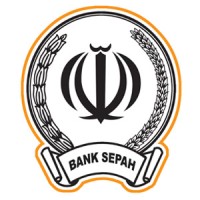
Bank Sepah (بانک سپه , Sepah Bank) Company Cyber Security Posture
http://www.banksepah.irAs the first established Iranian bank, Bank Sepah started its operations on May 4, 1925. The Bank Articles of Association were fundamentally revised in 1926, thus enabling it to render financial and banking services for economic activities. Now, as one of the most influential Iranian financial institutions, Bank Sepah with 94 years of experience effectively contributes to achievement of the country’s macroeconomic goals through mobilizing the funds from depositors and allocating them to the productive sectors. With a paid-up capital of IRR 119,531,843 million, the Bank now is one of the six Iranian state banks (wholly owned by the Government of I.R. of Iran) which plays a significant role in the economic development of Iran, through providing services on both national and international bases, within the framework of its three-year Strategic Plan, taking full advantage of its 1766 domestic branches, the three overseas branches in Paris, Rome and Frankfurt and one wholly-owned subsidiary, Bank Sepah International plc, in London.
BS(س,SB Company Details
banksepahofficial
542 employees
2043.0
522
Banking
http://www.banksepah.ir
Scan still pending
BAN_2151879
In-progress
Between 800 and 900
This score is AI-generated and less favored by cyber insurers, who prefer the TPRM score.
 BS(س,SB Global Score
BS(س,SB Global Score.png)

Bank Sepah (بانک سپه , Sepah Bank) Company Scoring based on AI Models
| Model Name | Date | Description | Current Score Difference | Score |
|---|---|---|---|---|
| AVERAGE-Industry | 03-12-2025 | This score represents the average cybersecurity rating of companies already scanned within the same industry. It provides a benchmark to compare an individual company's security posture against its industry peers. | N/A | Between 800 and 900 |
Bank Sepah (بانک سپه , Sepah Bank) Company Cyber Security News & History
| Entity | Type | Severity | Impact | Seen | Url ID | Details | View |
|---|---|---|---|---|---|---|---|
| Bank Sepah | Cyber Attack | 100 | 6/2025 | BAN301061725 | Link | ||
Rankiteo Explanation : Attack threatening the organization’s existenceDescription: A hacking group known as Predatory Sparrow, believed to be linked to Israel, has claimed responsibility for a cyberattack on Bank Sepah, an Iranian bank, saying it was retaliation for the institution’s alleged role in financing Iran’s military and nuclear programs. The attack reportedly disrupted customer services, causing problems with account access, withdrawals, and card payments. The disruption may also have affected Iran’s gas stations, which rely on the bank to process transactions. Several Bank Sepah branches were closed following the cyberattack, and some government employees and security personnel allegedly experienced delays in receiving their salaries. | |||||||
Bank Sepah (بانک سپه , Sepah Bank) Company Subsidiaries

As the first established Iranian bank, Bank Sepah started its operations on May 4, 1925. The Bank Articles of Association were fundamentally revised in 1926, thus enabling it to render financial and banking services for economic activities. Now, as one of the most influential Iranian financial institutions, Bank Sepah with 94 years of experience effectively contributes to achievement of the country’s macroeconomic goals through mobilizing the funds from depositors and allocating them to the productive sectors. With a paid-up capital of IRR 119,531,843 million, the Bank now is one of the six Iranian state banks (wholly owned by the Government of I.R. of Iran) which plays a significant role in the economic development of Iran, through providing services on both national and international bases, within the framework of its three-year Strategic Plan, taking full advantage of its 1766 domestic branches, the three overseas branches in Paris, Rome and Frankfurt and one wholly-owned subsidiary, Bank Sepah International plc, in London.
Access Data Using Our API

Get company history
.png)
BS(س,SB Cyber Security News
WestJet dealing with 'cybersecurity incident' impacting access to website, app
WestJet is alerting its employees and the public about a "cybersecurity incident" involving the Calgary-based airline's internal systems.
Italy's Leonardo buys a European cybersecurity company
Italy's Leonardo will soon announce the acquisition of a European cybersecurity company, its chairman told Reuters on Tuesday, ...
'Cyber Suraksha': Armed forces launch cybersecurity drill
Amid escalating cyber threats from China and Pakistan, the armed forces have initiated a 12-day 'Cyber Suraksha' exercise.
Trump EO pumps brakes on software security requirements
President Donald Trump's new cybersecurity executive order maintained Biden-era requirements for government contractors to sign off on a self- ...
OpenAI Inks $200 Million Deal With Pentagon for Cybersecurity
The Department of Defense has awarded OpenAI a $200 million contract to develop AI that addresses “national security challenges in both ...
Google Chrome Zero-Day CVE-2025-2783 Exploited by TaxOff to Deploy Trinper Backdoor
A now-patched security flaw in Google Chrome was exploited as a zero-day by a threat actor known as TaxOff to deploy a backdoor codenamed ...
AI meets OT: Steryon raises €1M to transform cybersecurity for industrial systems
Steryon offers a platform that enables industrial organisations to manage cyber risk in a structured way, aligned with their operations and ...
This Is One of the Biggest Cybersecurity Mistakes You Can Make at an Airport, Experts Warn
Cybersecurity experts are aligned that travelers should avoid public Wi-Fi at airports. Keep reading to learn why it's such a big risk and ...
‘We’re being attacked all the time’: how UK banks stop hackers
Devastating attacks at M&S, the Co-op and Harrods highlight risks as lenders say cybersecurity is biggest expense.

BS(س,SB Similar Companies

Emirates NBD
About Emirates NBD Emirates NBD (DFM: Emirates NBD) is a leading banking group in the MENAT (Middle East, North Africa and Türkiye) region with a presence in 13 countries, serving over 20 million customers. As at 30th September 2023, total assets were AED 836 billion, (equivalent to approx. USD 2

National Bank of Egypt (NBE)
Since its inception in 1898 with a capital of GBP1 million, NBE has been regarded as one of the oldest and most respected commercial banks in Egypt.Never isolated from national issues or concerns, NBE has been the primary supporter of Egypt’s national economy by financing the major Egyptian national

The People's Bank of China
The People's Bank of China (PBC) was established on December 1, 1948 based on the consolidation of the Huabei Bank, the Beihai Bank and the Xibei Farmer Bank. In September 1983, the State Council decided to have the PBC function as a central bank. The Law of the People's Republic of China on the Peo

First Citizens Bank
First Citizens Bank helps personal, business, commercial and wealth clients build financial strength that lasts. Headquartered in Raleigh, N.C., First Citizens has built a unique legacy of strength, stability and long-term thinking that has spanned generations. First Citizens offers an array of gene

AU SMALL FINANCE BANK
The dream started two decades ago by Mr. Sanjay Agarwal, a merit holder Chartered Accountant and a first generation entrepreneur, along with his proficient team. Together, the dexterous team embarked on a journey of excellence while enriching lives along the way. What started off as a dream to be

Bank Saderat Iran
As a private bank , BSI was established in 1952 . with around 3000 active branches , BSI runs the largest banking network in Iran . In 2000 , BSI started offering electronic online services , and now pioneers in the number of online branches ATM . machines , and point of sale terminals with remarkab

Frequently Asked Questions (FAQ) on Cybersecurity Incidents
BS(س,SB CyberSecurity History Information
Total Incidents: According to Rankiteo, BS(س,SB has faced 1 incidents in the past.
Incident Types: The types of cybersecurity incidents that have occurred include ['Cyber Attack'].
Total Financial Loss: The total financial loss from these incidents is estimated to be {total_financial_loss}.
Cybersecurity Posture: The company's overall cybersecurity posture is described as As the first established Iranian bank, Bank Sepah started its operations on May 4, 1925. The Bank Articles of Association were fundamentally revised in 1926, thus enabling it to render financial and banking services for economic activities. Now, as one of the most influential Iranian financial institutions, Bank Sepah with 94 years of experience effectively contributes to achievement of the country’s macroeconomic goals through mobilizing the funds from depositors and allocating them to the productive sectors. With a paid-up capital of IRR 119,531,843 million, the Bank now is one of the six Iranian state banks (wholly owned by the Government of I.R. of Iran) which plays a significant role in the economic development of Iran, through providing services on both national and international bases, within the framework of its three-year Strategic Plan, taking full advantage of its 1766 domestic branches, the three overseas branches in Paris, Rome and Frankfurt and one wholly-owned subsidiary, Bank Sepah International plc, in London..
Detection and Response: The company detects and responds to cybersecurity incidents through {description_of_detection_and_response_process}.
Incident Details
Incident 1: Ransomware Attack
Title: {Incident_Title}
Description: {Brief_description_of_the_incident}
Date Detected: {Detection_Date}
Date Publicly Disclosed: {Disclosure_Date}
Date Resolved: {Resolution_Date}
Type: {Type_of_Attack}
Attack Vector: {Attack_Vector}
Vulnerability Exploited: {Vulnerability}
Threat Actor: {Threat_Actor}
Motivation: {Motivation}
Incident 2: Data Breach
Title: {Incident_Title}
Description: {Brief_description_of_the_incident}
Date Detected: {Detection_Date}
Date Publicly Disclosed: {Disclosure_Date}
Date Resolved: {Resolution_Date}
Type: {Type_of_Attack}
Attack Vector: {Attack_Vector}
Vulnerability Exploited: {Vulnerability}
Threat Actor: {Threat_Actor}
Motivation: {Motivation}
Common Attack Types: As of now, the company has not encountered any reported incidents involving common cyberattacks.
Identification of Attack Vectors: The company identifies the attack vectors used in incidents through {description_of_identification_process}.
Impact of the Incidents
Incident 1: Ransomware Attack
Financial Loss: {Financial_Loss}
Data Compromised: {Data_Compromised}
Systems Affected: {Systems_Affected}
Downtime: {Downtime}
Operational Impact: {Operational_Impact}
Conversion Rate Impact: {Conversion_Rate_Impact}
Revenue Loss: {Revenue_Loss}
Customer Complaints: {Customer_Complaints}
Brand Reputation Impact: {Brand_Reputation_Impact}
Legal Liabilities: {Legal_Liabilities}
Identity Theft Risk: {Identity_Theft_Risk}
Payment Information Risk: {Payment_Information_Risk}
Incident 2: Data Breach
Financial Loss: {Financial_Loss}
Data Compromised: {Data_Compromised}
Systems Affected: {Systems_Affected}
Downtime: {Downtime}
Operational Impact: {Operational_Impact}
Conversion Rate Impact: {Conversion_Rate_Impact}
Revenue Loss: {Revenue_Loss}
Customer Complaints: {Customer_Complaints}
Brand Reputation Impact: {Brand_Reputation_Impact}
Legal Liabilities: {Legal_Liabilities}
Identity Theft Risk: {Identity_Theft_Risk}
Payment Information Risk: {Payment_Information_Risk}
Average Financial Loss: The average financial loss per incident is {average_financial_loss}.
Commonly Compromised Data Types: The types of data most commonly compromised in incidents are {list_of_commonly_compromised_data_types}.
Incident 1: Ransomware Attack
Entity Name: {Entity_Name}
Entity Type: {Entity_Type}
Industry: {Industry}
Location: {Location}
Size: {Size}
Customers Affected: {Customers_Affected}
Incident 2: Data Breach
Entity Name: {Entity_Name}
Entity Type: {Entity_Type}
Industry: {Industry}
Location: {Location}
Size: {Size}
Customers Affected: {Customers_Affected}
Response to the Incidents
Incident 1: Ransomware Attack
Incident Response Plan Activated: {Yes/No}
Third Party Assistance: {Yes/No}
Law Enforcement Notified: {Yes/No}
Containment Measures: {Containment_Measures}
Remediation Measures: {Remediation_Measures}
Recovery Measures: {Recovery_Measures}
Communication Strategy: {Communication_Strategy}
Adaptive Behavioral WAF: {Adaptive_Behavioral_WAF}
On-Demand Scrubbing Services: {On_Demand_Scrubbing_Services}
Network Segmentation: {Network_Segmentation}
Enhanced Monitoring: {Enhanced_Monitoring}
Incident 2: Data Breach
Incident Response Plan Activated: {Yes/No}
Third Party Assistance: {Yes/No}
Law Enforcement Notified: {Yes/No}
Containment Measures: {Containment_Measures}
Remediation Measures: {Remediation_Measures}
Recovery Measures: {Recovery_Measures}
Communication Strategy: {Communication_Strategy}
Adaptive Behavioral WAF: {Adaptive_Behavioral_WAF}
On-Demand Scrubbing Services: {On_Demand_Scrubbing_Services}
Network Segmentation: {Network_Segmentation}
Enhanced Monitoring: {Enhanced_Monitoring}
Incident Response Plan: The company's incident response plan is described as {description_of_incident_response_plan}.
Third-Party Assistance: The company involves third-party assistance in incident response through {description_of_third_party_involvement}.
Data Breach Information
Incident 2: Data Breach
Type of Data Compromised: {Type_of_Data}
Number of Records Exposed: {Number_of_Records}
Sensitivity of Data: {Sensitivity_of_Data}
Data Exfiltration: {Yes/No}
Data Encryption: {Yes/No}
File Types Exposed: {File_Types}
Personally Identifiable Information: {Yes/No}
Prevention of Data Exfiltration: The company takes the following measures to prevent data exfiltration: {description_of_prevention_measures}.
Handling of PII Incidents: The company handles incidents involving personally identifiable information (PII) through {description_of_handling_process}.
Ransomware Information
Incident 1: Ransomware Attack
Ransom Demanded: {Ransom_Amount}
Ransom Paid: {Ransom_Paid}
Ransomware Strain: {Ransomware_Strain}
Data Encryption: {Yes/No}
Data Exfiltration: {Yes/No}
Ransom Payment Policy: The company's policy on paying ransoms in ransomware incidents is described as {description_of_ransom_payment_policy}.
Data Recovery from Ransomware: The company recovers data encrypted by ransomware through {description_of_data_recovery_process}.
Regulatory Compliance
Incident 1: Ransomware Attack
Regulations Violated: {Regulations_Violated}
Fines Imposed: {Fines_Imposed}
Legal Actions: {Legal_Actions}
Regulatory Notifications: {Regulatory_Notifications}
Incident 2: Data Breach
Regulations Violated: {Regulations_Violated}
Fines Imposed: {Fines_Imposed}
Legal Actions: {Legal_Actions}
Regulatory Notifications: {Regulatory_Notifications}
Regulatory Frameworks: The company complies with the following regulatory frameworks regarding cybersecurity: {list_of_regulatory_frameworks}.
Ensuring Regulatory Compliance: The company ensures compliance with regulatory requirements through {description_of_compliance_measures}.
Lessons Learned and Recommendations
Incident 1: Ransomware Attack
Lessons Learned: {Lessons_Learned}
Incident 2: Data Breach
Lessons Learned: {Lessons_Learned}
Incident 1: Ransomware Attack
Recommendations: {Recommendations}
Incident 2: Data Breach
Recommendations: {Recommendations}
Key Lessons Learned: The key lessons learned from past incidents are {list_of_key_lessons_learned}.
Implemented Recommendations: The company has implemented the following recommendations to improve cybersecurity: {list_of_implemented_recommendations}.
References
Additional Resources: Stakeholders can find additional resources on cybersecurity best practices at {list_of_additional_resources}.
Investigation Status
Incident 1: Ransomware Attack
Investigation Status: {Investigation_Status}
Incident 2: Data Breach
Investigation Status: {Investigation_Status}
Communication of Investigation Status: The company communicates the status of incident investigations to stakeholders through {description_of_communication_process}.
Stakeholder and Customer Advisories
Incident 1: Ransomware Attack
Stakeholder Advisories: {Stakeholder_Advisories}
Customer Advisories: {Customer_Advisories}
Incident 2: Data Breach
Stakeholder Advisories: {Stakeholder_Advisories}
Customer Advisories: {Customer_Advisories}
Advisories Provided: The company provides the following advisories to stakeholders and customers following an incident: {description_of_advisories_provided}.
Initial Access Broker
Incident 1: Ransomware Attack
Entry Point: {Entry_Point}
Reconnaissance Period: {Reconnaissance_Period}
Backdoors Established: {Backdoors_Established}
High Value Targets: {High_Value_Targets}
Data Sold on Dark Web: {Yes/No}
Incident 2: Data Breach
Entry Point: {Entry_Point}
Reconnaissance Period: {Reconnaissance_Period}
Backdoors Established: {Backdoors_Established}
High Value Targets: {High_Value_Targets}
Data Sold on Dark Web: {Yes/No}
Monitoring and Mitigation of Initial Access Brokers: The company monitors and mitigates the activities of initial access brokers through {description_of_monitoring_and_mitigation_measures}.
Post-Incident Analysis
Incident 1: Ransomware Attack
Root Causes: {Root_Causes}
Corrective Actions: {Corrective_Actions}
Incident 2: Data Breach
Root Causes: {Root_Causes}
Corrective Actions: {Corrective_Actions}
Post-Incident Analysis Process: The company's process for conducting post-incident analysis is described as {description_of_post_incident_analysis_process}.
Corrective Actions Taken: The company has taken the following corrective actions based on post-incident analysis: {list_of_corrective_actions_taken}.
Additional Questions
General Information
Ransom Payment History: The company has {paid/not_paid} ransoms in the past.
Last Ransom Demanded: The amount of the last ransom demanded was {last_ransom_amount}.
Last Attacking Group: The attacking group in the last incident was {last_attacking_group}.
Incident Details
Most Recent Incident Detected: The most recent incident detected was on {most_recent_incident_detected_date}.
Most Recent Incident Publicly Disclosed: The most recent incident publicly disclosed was on {most_recent_incident_publicly_disclosed_date}.
Most Recent Incident Resolved: The most recent incident resolved was on {most_recent_incident_resolved_date}.
Impact of the Incidents
Highest Financial Loss: The highest financial loss from an incident was {highest_financial_loss}.
Most Significant Data Compromised: The most significant data compromised in an incident was {most_significant_data_compromised}.
Most Significant System Affected: The most significant system affected in an incident was {most_significant_system_affected}.
Response to the Incidents
Third-Party Assistance in Most Recent Incident: The third-party assistance involved in the most recent incident was {third_party_assistance_in_most_recent_incident}.
Containment Measures in Most Recent Incident: The containment measures taken in the most recent incident were {containment_measures_in_most_recent_incident}.
Data Breach Information
Most Sensitive Data Compromised: The most sensitive data compromised in a breach was {most_sensitive_data_compromised}.
Number of Records Exposed: The number of records exposed in the most significant breach was {number_of_records_exposed}.
Ransomware Information
Highest Ransom Demanded: The highest ransom demanded in a ransomware incident was {highest_ransom_demanded}.
Highest Ransom Paid: The highest ransom paid in a ransomware incident was {highest_ransom_paid}.
Regulatory Compliance
Highest Fine Imposed: The highest fine imposed for a regulatory violation was {highest_fine_imposed}.
Most Significant Legal Action: The most significant legal action taken for a regulatory violation was {most_significant_legal_action}.
Lessons Learned and Recommendations
Most Significant Lesson Learned: The most significant lesson learned from past incidents was {most_significant_lesson_learned}.
Most Significant Recommendation Implemented: The most significant recommendation implemented to improve cybersecurity was {most_significant_recommendation_implemented}.
References
Most Recent Source: The most recent source of information about an incident is {most_recent_source}.
Most Recent URL for Additional Resources: The most recent URL for additional resources on cybersecurity best practices is {most_recent_url}.
Investigation Status
Current Status of Most Recent Investigation: The current status of the most recent investigation is {current_status_of_most_recent_investigation}.
Stakeholder and Customer Advisories
Most Recent Stakeholder Advisory: The most recent stakeholder advisory issued was {most_recent_stakeholder_advisory}.
Most Recent Customer Advisory: The most recent customer advisory issued was {most_recent_customer_advisory}.
Initial Access Broker
Most Recent Entry Point: The most recent entry point used by an initial access broker was {most_recent_entry_point}.
Most Recent Reconnaissance Period: The most recent reconnaissance period for an incident was {most_recent_reconnaissance_period}.
Post-Incident Analysis
Most Significant Root Cause: The most significant root cause identified in post-incident analysis was {most_significant_root_cause}.
Most Significant Corrective Action: The most significant corrective action taken based on post-incident analysis was {most_significant_corrective_action}.
What Do We Measure?
















Every week, Rankiteo analyzes billions of signals to give organizations a sharper, faster view of emerging risks. With deeper, more actionable intelligence at their fingertips, security teams can outpace threat actors, respond instantly to Zero-Day attacks, and dramatically shrink their risk exposure window.
These are some of the factors we use to calculate the overall score:
Identify exposed access points, detect misconfigured SSL certificates, and uncover vulnerabilities across the network infrastructure.
Gain visibility into the software components used within an organization to detect vulnerabilities, manage risk, and ensure supply chain security.
Monitor and manage all IT assets and their configurations to ensure accurate, real-time visibility across the company's technology environment.
Leverage real-time insights on active threats, malware campaigns, and emerging vulnerabilities to proactively defend against evolving cyberattacks.




